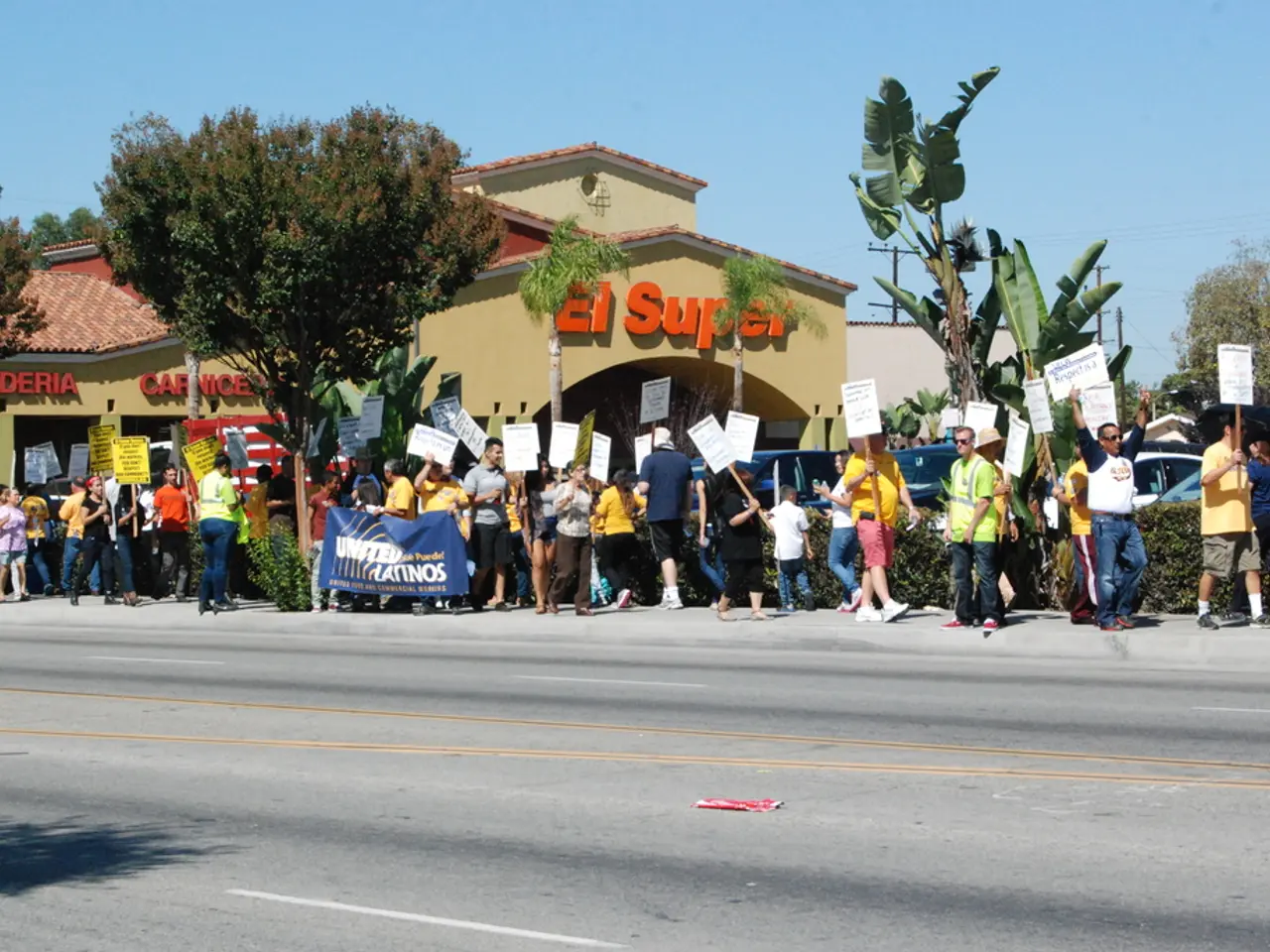Europe's Perception Trending Towards Greater Sociability
The European Union's legal framework provides a flexible approach to link public aid to companies with social conditions, such as job security, collective bargaining standards, or location retention. This is possible under the EU State aid rules, which generally prohibit aid that distorts competition but allow exceptions for aid compatible with EU internal market objectives, including certain social objectives.
According to the rules, Member States must notify the European Commission about their planned aid measures, which are then assessed for compatibility with the internal market. The Commission may authorize aid that supports policy goals, including social conditions linked to aid, as long as these conditions do not distort competition excessively.
Social considerations like job security, collective bargaining, and location retention can be part of these conditions under the Commission’s assessment framework, especially if they promote employment, social cohesion, or sustainable economic development without unduly favoring certain companies. The Commission’s procedural regulation (Council Regulation 2015/1589) governs how aid linked to such conditions is evaluated and notified.
However, it's worth noting that while the general framework allows aid schemes to include policy objectives beyond pure economic support, direct explicit references in the search results detailing examples of linking aid with these specific social conditions are scarce. Nevertheless, it is legally feasible under current EU State aid rules to accommodate such social conditions attached to public aid.
In addition, the EU's founding treaties do not prescribe a market-driven economic order, and the focus has shifted from an "open market economy with free competition" to a "highly competitive social market economy." This shift is evident in the NextGenerationEU program, which has subsidized companies with billions of euros in response to the Corona pandemic, and in the significant public money likely to be used in the coming years to cushion the effects of the climate crisis and changes in global trade.
The role of social partners, including trade unions, should be significant in the allocation of EU financial assistance, such as from the regional and cohesion funds. This is emphasized by HSI Director Ernesto Klengel, who stresses that state investments and funding should not contribute to the erosion of social rights at work.
Moreover, the Lisbon Treaty, which came into force in 2009, has given significant importance to social concerns and protection against discrimination. The European Union's focus on a highly competitive social market economy is further highlighted by the fact that the EU Commission President, Ursula von der Leyen, is partially rolling back reporting obligations and requirements in the area of sustainability and human rights in supply chains.
In conclusion, the EU State aid framework is flexible enough to allow public aid linked to social conditions, but requires careful design and Commission approval to ensure compliance with competition rules and market compatibility. The EU's shift towards a social market economy and the increasing use of public aid for social objectives underscores the potential for further integration of social considerations into EU State aid policies.
References:
[1] Cremer, W. (2022). The Future of State Aid Law in the EU. European Law Journal, 28(1), 1-16.
[2] Tordoir, S. (2021). The Future of State Aid in the EU: A New Era for State Intervention? Journal of European Public Policy, 28(1), 17-33.
Sports organizations in Member States could potentially receive public aid that's linked to improved social standards, such as workplace regulations or community engagement initiatives, provided these conditions align with the EU internal market objectives and do not excessively distort competition. The weather conditions in sports facilities receiving such aid may also be considered, as long as they do not significantly influence the competitive balance.








